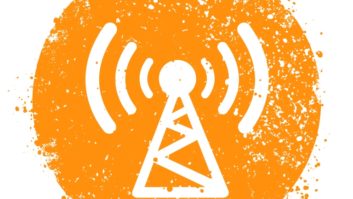WASHINGTON�Former FCC Commissioners Michael Copps and Robert McDowell penned an op-ed�Will FCC Keep Its Promise to Help AM Radio?�published in The Hill. Their joint letter was written in support of an FM translator window exclusively for AM radio licensees.

Copps, a Democrat, served on the FCC from May 2001 to December 2011, and he was the commission�s acting chair from January through June 2009. McDowell, a Republican, served on the FCC from June 2006 through May 2013.
The letter began with a light tone, acknowledging political differences and equally partisan college basketball loyalties, but shifted quickly to their strong, shared belief in the need for AM revitalization.
�Today, AM radio remains an indispensable source for local news, talk and public affairs, as well as music, sports and religious programming,� Copps and McDowell wrote. �And in recent years, AM radio has shown great promise as a key source for cultural content for racial and ethnic minority groups�. With relatively low barriers to entry, AM radio can be a gateway into the media field for women, minorities and other entrepreneurs who may lack access to investment capital.�
But the two did sugarcoat the challenges facing MW broadcasters: �AM radio confronts serious challenges right now, A primary culprit is ever-increasing interference from computers, fluorescent lighting, and other sources of the hums and buzzes we have all heard on our local AM stations. As a result, listeners are fleeing AM radio for higher fidelity alternatives.�
Copps and McDowell noted the commission does have �a couple of tools at its disposal that could help many AM radio stations survive, if not thrive. In particular, the FCC should follow through with the proposal first adopted under then-acting Chairwoman Clyburn to open an application window for FM translators that is limited to licensed AM broadcasters.�
�Such a window is the only way many AM radio stations will ever be able to obtain a translator and provide improved, expanded service to their listeners. This approach is especially important for women and minority owners of AM stations, who are more likely to run small standalone stations on shoe-string budgets. Any other steps the FCC may take to help AM radio, no matter how well intentioned, would be relatively small change compared to an AM-only translator window, and do little to meet the FCC�s expressed goal of revitalizing AM radio.�
Copps and McDowell wrote that since 2011, about 20 percent of AM stations have acquired translators, saying, �Translators have been a boon for those stations lucky enough to find one, but too many AM stations are stuck on the sidelines because demand for translators far outstrips supply in many areas.�
The NAB picked up on the letter, and EVP of Communications Dennis Wharton said, �NAB hopes the chairman will listen clearly to the bipartisan calls from past and current FCC members calling for meaningful revitalization of AM radio.�
�










